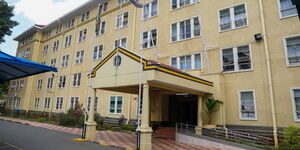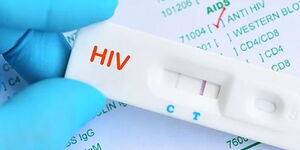The Nakuru County government has threatened to revoke the licenses of traders, including hotels, who are selling contaminated fish extracted from Lake Nakuru.
In a public notice, Naivasha Sub-County Head of Fisheries, Henry Koech, stated that research from Egerton University in 2024 found that fish from the lake have high levels of lead and mercury, making them unsafe to eat.
Besides revoking licenses, the Nakuru County Public Health Department, Kenya Fisheries Service, Kenya Wildlife Service, and other agencies will pursue legal action against the traders.
"This is to notify all fish traders and hoteliers operating within Naivasha Sub-County that illegal fish extracted from Lake Nakuru is not fit for human consumption," Koech stated.
"Research conducted by experts from the County government of Nakuru in 2020 and Egerton University in 2024 confirmed the fish from Lake Nakuru contain dangerous high levels of heavy metals, including lead and mercury, rendering them unsafe for human consumption," he added.
Lake Nakuru, which is known for its alkaline waters, is not a natural habitat for fish. Furthermore, experts have cautioned that the high levels of pollution and chemical runoff from the surrounding urban areas to the lake have made the fish extremely toxic.
Numerous studies have linked the consumption of mercury and lead-contaminated fish to severe health problems, including damage to the nervous system, kidneys, and bones, and increased the risks of cancer, cardiovascular disease, and developmental issues in children.
Just two months ago, Interior Cabinet Secretary Kipchumba Murkomen revealed that some individuals have developed a habit of harvesting toxic fish from the lake and repackaging them as Tilapia from Kisumu.
Speaking during a Jukwaa la Usalama forum on Tuesday, August 12, Murkomen claimed that the individuals have been harvesting the fish, transporting them to Kisumu, and then repackaging and redistributing them to major towns and cities as Tilapia, which is safe.
Murkomen assured that the government will deploy a multi-agency task force, from the Ministry of Interior, in collaboration with the KWS and local security teams, to crack down on the individuals who harvest and own big cold rooms and refrigerators to store the toxic fish.
"Also of great concern to us is the unlawful fishing in Lake Nakuru, which is also being supported by big men with refrigerated cold rooms here together with lorries that come to carry that fish,'' Murkomen said.
"It must be noted by the public that this is not fish fit for human Consumption. What is sad is that it is sometimes transported to Kisumu and brought back like Tilapia from Kisumu," he added.












